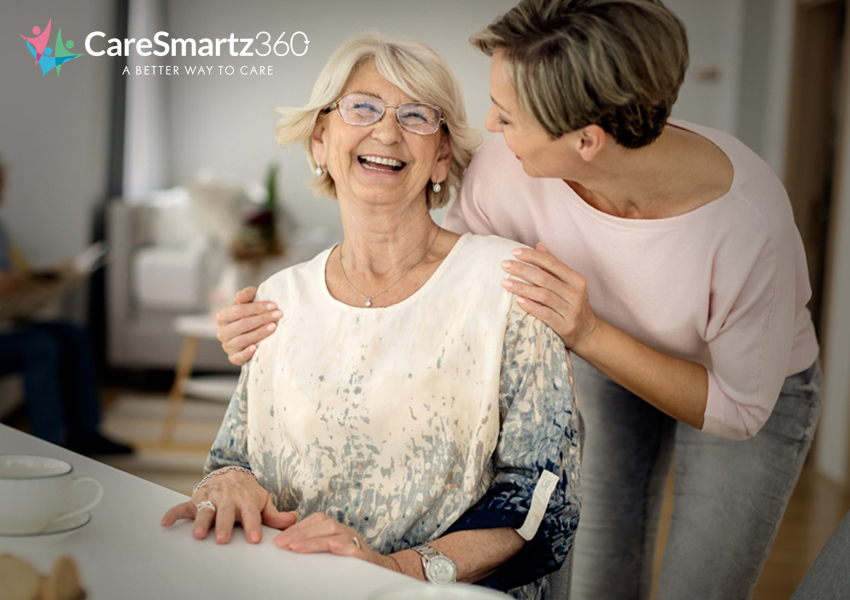Building Trust: A Guide to Effective Communication Between Families and Care Providers

Caregivers for the elderly play a crucial role and are a key point of contact between family members and their loved ones. Besides just providing care, caregivers must be good communicators to ensure a smoothie and happier experience for not only the elderly but also for their families.
And there are instances when communication could be more pleasant. Disagreements and arguments may occur between family members, caregivers, and the care recipient, which caregivers for the elderly must work out. However, with professional caregiver training and an outsider’s perspective, things can fall into place and tackle issues that arise. After all, it’s the primary responsibility of the elderly to decrease stress and maintain a healthy environment.
Wondering how to establish effective communication channels between elderly family members and care providers? Well, here are some tips to keep lines of communication open:
- Prioritize the Elderly’s Needs:
As a paid caregiver for the elderly, your foremost responsibility is to the person you’re caring for. They can make decisions, listen, honor, and empower their choices. Even if support is needed, encourage them to make decisions and offer help where necessary.
For instance, if they prefer wearing pajamas to dinner, allow it. Long-term success lies in providing encouragement, honor, and respect.
- Decide Whom to Talk from the Family:
Regularly communicating with multiple family members can lead to discord. It’s impractical for caregivers to handle various, potentially conflicting instructions. Expecting caregivers to repeat information to multiple family members or act as liaisons isn’t fair.
Instead, caregivers should suggest that the family appoint a representative, often someone who self-identifies for smoother communication.
- Build Trust:
Effective communication hinges on building trust. Caregivers foster trust by embodying honesty, reliability, punctuality, compassion, respect, and openness to dialogue. Establishing a relationship built on these principles enhances caregiver-patient dynamics and strengthens connections with patients’ families. This trust forms the foundation for smoother communication, ensuring caregivers can effectively address concerns and collaborate with seniors and their families for a more positive and supportive care environment.
- Select your Preferred Communication Technique:
Commence an early discussion to ascertain the family’s preferred communication method and the specific information they deem essential. Depending on the care schedule, options may include sending a daily group text or providing updates three times a week. This proactive approach ensures alignment with the family’s preferences and enhances communication, fostering a collaborative and informed family caregiving environment.
- Maintain a Journal:
Caregivers should maintain a comprehensive care journal, a shared repository documenting daily activities. Accessible to all involved parties, this journal allows family caregivers to review the provided care details regularly. This practice promotes transparency and establishes a foundation for enhanced communication within the caregiving framework.
The shared record is a valuable tool for ensuring that all stakeholders stay informed and engaged in the care process, contributing to a collaborative and well-informed caregiving environment.
- Utilize Technology to the Fullest:
Adopting technology, platforms like Skype, Zoom, and Facebook offer convenient avenues for families to connect with their loved ones and caregivers. These tools enable family members to see and virtually experience their parent’s health condition or state of mind, fostering a sense of connection.
Ideally, this interaction could occur every month, involving all family members for a comprehensive update and engagement with their parents.
- Set Healthy Boundaries:
While it’s natural to form a bond with someone you care for daily, when family caregiving for seniors, uphold healthy boundaries with the families they assist. Acknowledge that you haven’t shared the same experiences as the family members, and respect their unique history.
Avoid disclosing personal biases or preferences and maintain a professional distance to ensure a respectful and considerate caregiving relationship.
Final Thoughts
Effective communication between families and care providers is paramount for a harmonious caregiving journey. This guide underscores the significance of trust as the foundation for successful interactions. Caregivers can build enduring connections with patients and their families by prioritizing honesty, dependability, compassion, and open dialogue. Incorporating preferred communication methods, embracing technology, and respecting boundaries contribute to a supportive and transparent caregiving environment.
In aligning these principles, caregivers can navigate challenges, enhance collaboration, and ultimately provide the best possible care while preserving the dignity and well-being of those entrusted to their care.
Related blog posts:
How Can In-Home Caregivers Help Seniors Age with Dignity and Privacy?Home Care Tips for Caregivers to Take Care of the Elderly

